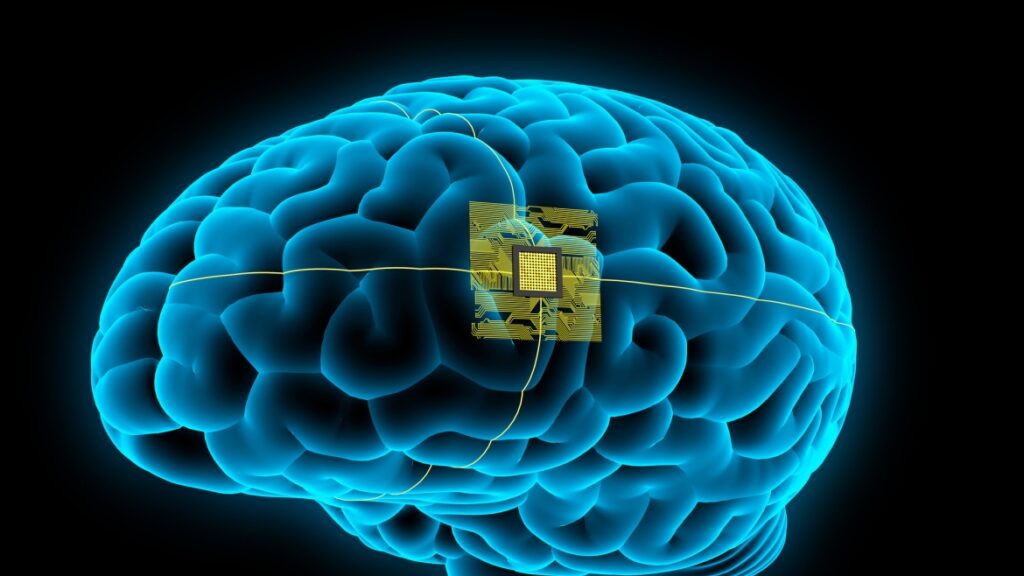Are you living with a brain disorder? If so, the revolutionary Neuro-Chip could be the answer to suppressing its symptoms and managing your condition. Developed by researchers at EPFL, this Neuro-Chip is a low-power chip design merging machine learning algorithms with soft implantable electrodes to create a neural interface. This remarkable invention has the potential to change the lives of those suffering from neurological disorders. Through a process of accurately detecting and mitigating symptoms, the Neuro-Chip is quickly becoming a viable option for providing effective disease control. What’s more, this revolutionary neural interface was presented at the 2022 IEEE International Solid-State Circuits Conference as well as in the IEEE Journal of Solid-State Circuits, adding to its credibility. Thus, uncovering the way forward towards providing relief to those struggling with diseases of the brain.
A Revolutionary Neuro-Chip
NeuralTree, a new neuro-chip designed to manage brain disorders, functions by extracting neural biomarkers from brain waves and classifying signals that can indicate certain neurological disorders. It is one of the first machine-learning-embedded devices that has an unprecedented level of efficiency, scalability, and versatility. Compared to other chips utilizing machine learning algorithms, NeuralTree has more input channels incorporated in its small size.
The chip also integrates an ‘energy-aware’ learning algorithm which is highly energy efficient. With this algorithm, it can detect a broader range of symptoms than other devices. For instance, NeuralTree is the first to demonstrate Parkinsonian tremor detection with an on-chip classifier. This is a major improvement as it can detect a particular symptom much faster and without relying on any external processing input or image recognition.
Furthermore, NeuralTree will benefit from advanced computer vision and artificial intelligence technologies. As these technologies become more sophisticated, the neuro-chip’s performance and accuracy will increase. Additionally, NeuralTree has the capability to update its algorithms by itself, reducing the time and effort for manual tweaking or calibrations. Such an automatic self-upgrading feature could make the chip’s applications even more valuable in future environments.
In conclusion, NeuralTree is an innovative neuro-chip that excels in efficiency, scalability and versatility. Not only does it offer improved performance on detecting different symptoms associated with neurological disorders, but it also has built-in features to make self-updating possible. In this way, NeuralTree demonstrates promising potential for managing brain disorders in the near future.
Making Autonomous Neural Technologies a Reality for Effective Disease Control
Mahsa Shoaran is passionate about making neural interfaces more intelligent to enable effective disease control. She is an Electrical and Computer Engineering researcher at the University of Toronto whose research focuses on developing state-of-the-art neural electrodes and using high-quality patient data. Her goal is to create algorithms that can update themselves on-chip. This will enable the device to adapt to the changes in brain activity, while simultaneously providing a significant level of control over the symptoms of various brain diseases.
In order to make this dream a reality, Shoaran requires interdisciplinary collaboration. Her research project brings together electrical engineers, neuroscientists, and clinicians to ensure a multi-leveled approach. Consequently, her work has been well received by not only researchers within the same field but also by clinicians who treat patients living with neurological disorders.

Shoaran’s research project has already produced two papers that describe different aspects of autonomous neural technologies; both have been published in Nature Communications. The first paper presents an autonomous platform for analyzing large datasets collected from patients with epilepsy, allowing clinicians to better understand the underlying physiology of the disease. The second paper outlines a novel algorithm that can self-tune an implanted electronic device based on real-time acquired data from a patient’s brain activity.
The exciting potential for these self-updating algorithms means that with further development and refinement they could eventually be used as a tool for controlling neurological diseases such as Parkinson’s Disease or Alzheimer’s Disease in the future. Shoaran’s ongoing research into this area is sure to provide new insights into how our brains interact with artificial intelligence and make way for advancements in personalized healthcare.
Brain disorders can be incredibly difficult to manage, but with the revolutionary neuro-chip, sufferers now have a powerful tool to help them take control of their symptoms. This autonomous neural technology allows us to keep a close eye on our neural pathways, ensuring a healthy, balanced brain state. Ultimately, this innovative piece of technology has the potential to revolutionize brain health, giving us the power to effectively manage our symptoms and live our best lives.


